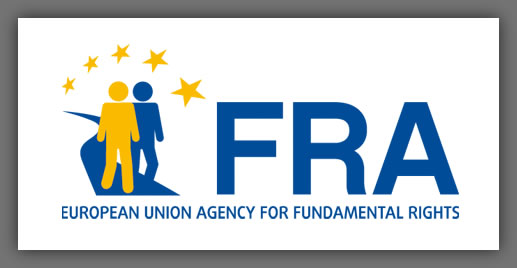The European Union Agency for Fundamental Rights (FRA) released the Fundamental Rights Report 2022 that assesses the key developments in the areass of fundamental rights from 2021, achievements and shortcomings. The report dives into many areas, with Malta featuring many times for the country’s shortcomings in the protection of fundamental rights, and for its achievements. This blogpost gives an overview of how Malta features in the FRA report, providing an interesting insight into human rights in Malta in 2021.
The report begins by discussing social rights and equality post-Covid-19 Pandemic, highlighting Malta’s plan to assess its unemployment benefit’s system, and to fund technological advancements to promote access to health care. Malta, among other EU Member States, plans to promote the active participation of persons with disabilities in social life through the recovery and Resilience Facility.
The report mentions the plan for an NHRI to replace the current National Commission for the Promotion of Equality for Men and Women. Malta was also praised for their recent inclusion of sexual orientation, racial origin and religion in the data collected by the Census of Population and Housing 2021. FRA reported that EU citizens and family members experience discrimination on the basis of their nationality where non-Maltese EU citizens are required to present pay-slips as proof of social security before receiving treatment from public healthcare providers, whereas Maltese citizens are only asked to present identity cards.
FRA acknowledged the trend of racist hate crimes in Malta, referencing the allegedly racially motivated attack against a Somali man who was beaten and thrown into the sea last year. In the wake of the EU Anti-Racism Action Plan’s call for action at a national level, Malta adopted its first anti-racism action plan, including an inter-ministerial committee and an anti-racism platform to monitor the implementation of the plan.
A notable shortcoming in the protection of fundamental rights in Malta lies in the asylum and migration system, where FRA highlighted many areas for improvement, including the disembarkation of rescued migrants in Europe and pushbacks to Libya. The Libyan Coast Guard picked up 32,425 people rescued from the central Mediterranean and brought them back to Libya, and despite pleas in opposition, Malta adopted its agreement with Libya in May 2020 to facilitate such pushbacks.
FRA also highlighted the lack of information on the possibility of lodging an asylum application in reception facilities in Malta. It highlighted the Group of Experts on Action against Trafficking in Human Beings’ recommendations for authorities to proactively identify trafficked persons among asylum seekers, and the ECtHR ruling that the inadequate pre-removal detention conditions in Malta violated Article 3 of the ECHR, the prohibition of ill-treatment.
FRA echoes the CPT report on Malta’s detention system, highlighting prolonged detention of asylum seekers, including unaccompanied and accompanied children, in overcrowded conditions with limited or non-existent access to outdoor exercise or activities, that may amount to inhuman or degrading treatment, with allegations of ill-treatment from guards. This includes the detention of people claiming to be children, pending age assessments, with unrelated adult men. In 2021, 248 people claiming to be children arrived and all irregular entries were detained.
FRA outlines the CPT’s recommendations to the Maltese authorities to cease the detention of unaccompanied children, and to accommodate vulnerable persons in suitable open centres. Regarding children in conflict with the law, FRA highlighted the transposition of the Procedural Safeguards Directive into Maltese lawand the infringement procedures against Malta that were still open in 2021.
The report discusses access to justice, victims’ rights, including women and victims of gender-based violence in relation to the Istanbul Convention. The CoE Convention provides guidance to countries on preventing and combating violence against women and domestic violence, with Malta ratifying in 2014.
Under Articles 50 and 52 of the Istanbul Convention, states party to the Convention must ensure the immediate and reliable protection of victims, including the issuance of an emergency barring order (EBO) to force the perpetrator to leave the victim’s home immediately and without the victim asking or even consenting.
In many Member States, including Malta, emergency barring orders are non-existent in legislation or in practice.
This results in victims being forced to leave their home instead of the abuser, including in cases where EBOs have been issued, but no steps were taken to ensure the compliance of the abuser.
Shelter’s for abused women should complement but not replace EBOs, as victims of domestic violence should be able to rely on their homes as safe spaces if they wish to stay or later return to their homes. The FRA report highlights that some countries, including Malta, rely primarily on shelters to protect women from repeat victimisation by their partners, placing the burden of their safety on the victim.
The Ministry for Social Accommodation extended its Private Rent Housing Benefit Scheme in 2021 to domestic violence survivors to enable women who are suffering domestic abuse to leave their homes. An amendment to the Victims of Crime Act also provides for access to appropriate accommodation or shelters for victims in need of a safe space due to imminent risk and to prevent repeat victimisation.
GREVIO, the independent expert body responsible for monitoring the implementation of the Istanbul Convention, has criticised Malta for the nonexistence of a legal basis for EBOs. This results in domestic abuse survivors being advised to go to a women’s shelter instead of an EBO, and in cases where the victim is not ready to stand up to the perpetrator at the time of police intervention, they remain unprotected.
Despite some recent improvements made by Malta in 2021, major issues prevail in Malta surrounding its protection and fulfillment of fundamental rights. The process to ensure these fundamental rights must include listening to the recommendations from relevant bodies such as the Fundamental Rights Agency, on issues such as asylum and women’s rights in order to protect the rights of Maltese-, and non-Maltese citizens alike.


